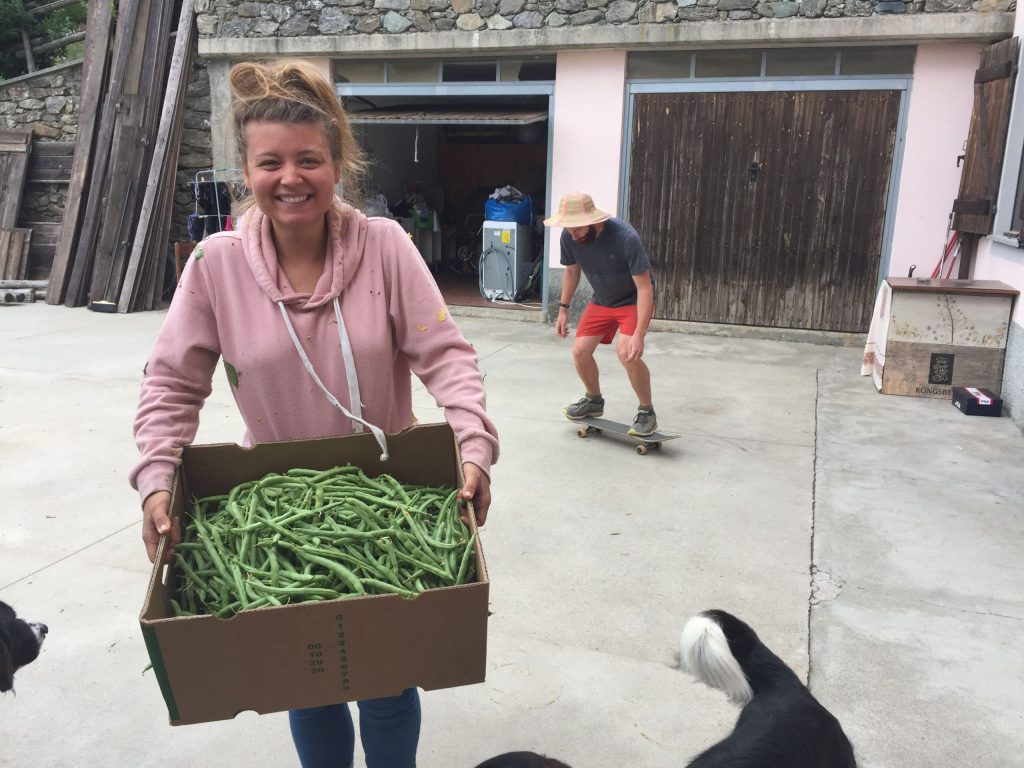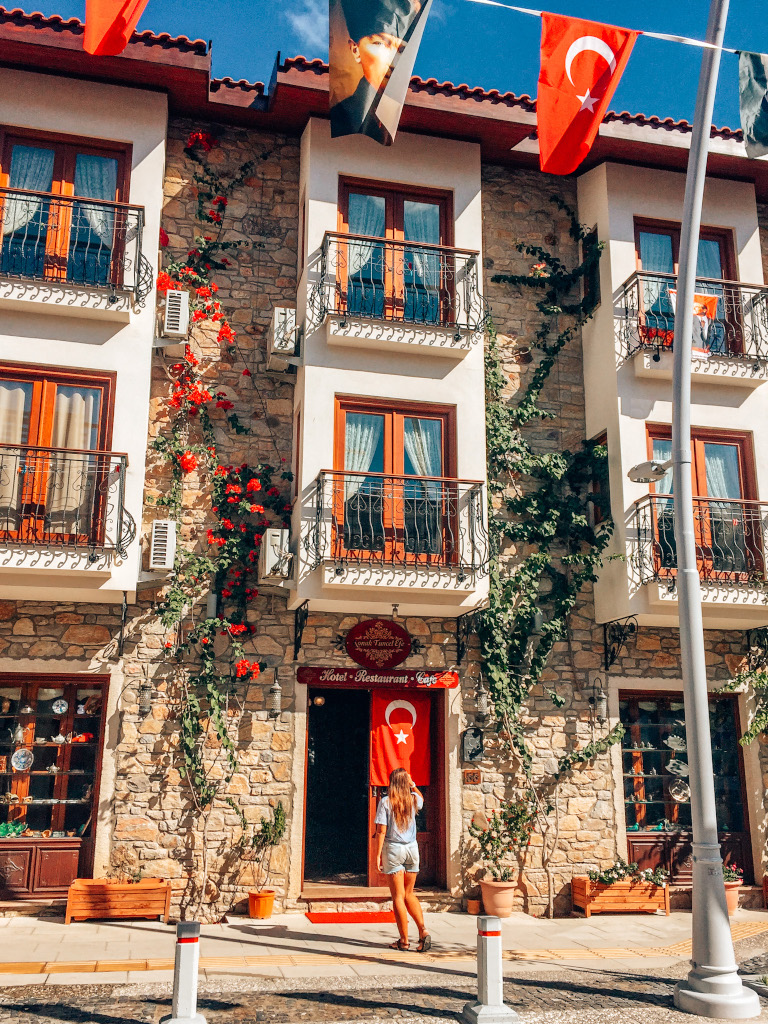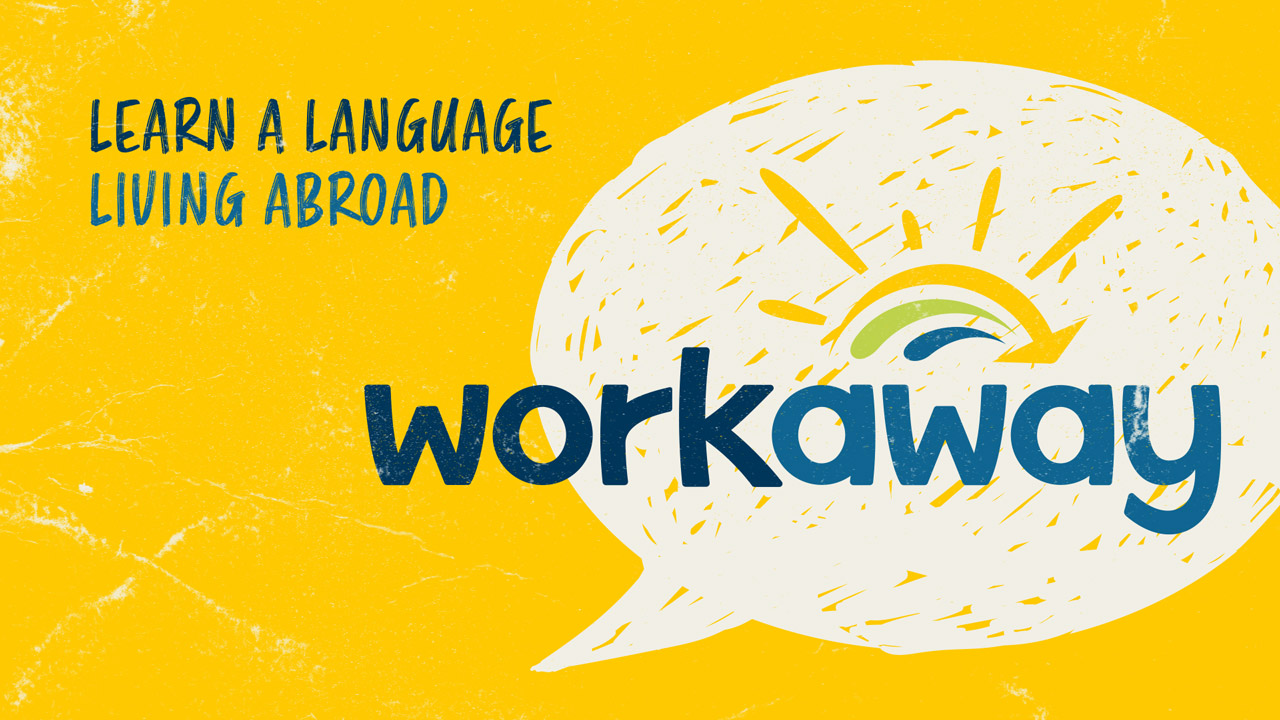You Can Learn a Language Living Abroad – Here’s What Worked for Me (And What Didn’t)
Intuition will tell you that there is no better way to learn Italian than to get up and move yourself to Italy. A summer in Italy, living with an Italian family, and speaking Italian every day — it's the perfect immersive environment.
How could you NOT learn Italian, right?
Workaway presents the perfect opportunity to do just that. Workaway is a website that connects travelers who want free room and board with hosts that want five hours of free labor five days a week.
You choose from one of the 170 countries and narrow down your opportunities by location and the type of labor you want to do.
A year membership costs anywhere from $44-$56 depending on whether you're single or traveling with someone.
They even have a whole section showing you how it's the perfect environment to learn a language. So, I was basically sold. Free board in Italy and free language learning? Sign me up!

In fact, this very quote from the Workaway website convinced me that this was exactly what I needed at this point in my language journey:
Whatever language you are studying, there is no doubt that the best way to learn is to go to the country where the language is actually spoken, and to immerse yourself completely.
However, my almost two months in Italy and three separate Workaway experiences turned out quite differently than I had imagined.
Doing Workaway in a country that speaks the language you want to learn is not as “immersive” as the website makes it seem. Here’s why:
Actually Getting Your Host to Speak to You in Their Language is More Difficult than You'd Think
Before heading to Italy, I had been studying Italian for a few months and one thing I heard over and over was that a lot of Italians did not speak English and that you'd need Italian to travel around the country.
This led me to believe that the hosts would want to speak with me in Italian even though my Italian was not that advanced yet.
However, in each of the three Workaways I visited, the hosts spoke excellent English. Not only that, but their English was so much better than my Italian that they did not want to speak to me in Italian. Instead, they were practicing English.
Following Benny Lewis' advice on getting natives to talk to you in their language, I only responded to them in Italian (to the best of my ability) and I asked them to please speak to me in Italian instead of English.
To be honest, this didn't work as well as I'd hoped. They would speak in Italian for a few minutes and then switch back and the next day I'd be back to asking them to help me practice.
It got quite frustrating, especially since their learning English was not a part of the agreed-upon five hours of labor (which for some hosts is part of what they want you to do).
You Might Be Underestimating the Number of Hours You'll Be Working
When you sign up for a Workaway, you are signing up for five hours a day for five days. The host gets to decide which days you get off and what work you do each day.
This sounds easy in theory, but once you get to your Workaway you will most likely notice that counting those five hours gets a little difficult.
Technically, you should only be working those hours, but the lines get blurry and there is no timer keeping track. When your host asks you to help with something and you've already done your five hours for the day, the chances are that you're not going to say no.
In two out of the three Workaways that we did in Italy, we worked more than just the 5 hours. But what's the problem with that and language learning?
While You Work, Your Host Most Likely Won't Be There With You
While you are gardening or doing chores, your host most likely will not be at your side. That's the whole reason why they have you there, to work while they do something else.
That means that all those hours that you spend working are not spent speaking in your target language.
Instead, you'll probably be alone or with another Workawayer, who probably doesn't speak the language you want to learn either.
Most Workaways are Gardening & Manual Labor, Which Gets Exhausting
If you are not accustomed to manual labor or gardening, the work might be more difficult than you think. I brushed that fact aside, in the beginning, thinking that I'd get in shape and maybe get a good tan out of it.
Instead, I found myself quite exhausted at the end of the workday. Including the fact that most of the time I was working more than the 5 hours required.

I was also doing certain chores that I wouldn't have anticipated but I felt uncomfortable saying no to.
For example, spending multiple days on my hands and knees scrubbing a deck with bleach or making dinner for the family even after working 5 hours that day.
At the end of the day, I still tried to speak to the hosts in Italian, but my energy was spent and I wasn’t learning much from those very short conversations.
Some Hosts May Not Have the Patience to Help You Learn (Especially if You are a Beginner)
At the end of the day, your hosts are not language teachers. They have a lot of work on their plate already and you are there to make their life easier.
When you are just starting to learn a language, you are at a very beginner level that can really frustrate a native speaker trying to communicate with you. In the end, that was my biggest mistake and oversight by far.
After reading this blog post, I realized that I had done this experience backward. Instead of heading straight to Italy as a complete A1 beginner, I should have tried these Workaways once I'd hit a B1 level.
What I Did Instead that ACTUALLY Worked
I Moved to Turkey
I know this sounds counterintuitive but bear with me!
Immediately after our three Workaways in Italy, we visited Greece and then went on to Turkey, where we spent a little over two months.
In those two months in Turkey, I learned more Italian than in the whole two months living in Italy. This may not be a revelation to you, but it definitely was to me.
It forever changed the way I looked at learning languages and what you ACTUALLY need in order to become conversational.
I Started Taking 2-3 iTalki Classes per Week with Language Exchanges Mixed in
In Turkey, instead of working five plus hours a day for a Workaway host, I was working four plus hours teaching English online.

This made a huge difference in my energy levels and I spent every minute outside of those four hours studying Italian.
However, the BIGGEST and most important part of my journey to learn Italian was taking iTalki classes.
I started to take 2-3 iTalki classes per week, as well as free language exchanges with partners that I found through iTalki (unfortunately, they no longer have this feature on their website).
Like Benny Lewis always says, speak as soon as possible. To save money, I took conversation classes only and never ever spoke in English during my classes.
I Used Duolingo in Every Spare Moment
People love to hate on Duolingo, but for someone who doesn't love actually studying grammar, it was the perfect way to study.
The most efficient way to use Duolingo is to use it like you are completing activities in a Language Textbook. Instead of trying to understand why you are conjugating a verb that way or using that article there, try to spot patterns.
My main goal by using Duolingo was to not just learn Italian but to feel when something is wrong instead of just knowing when it is.
With English, I wouldn't need to be able to explain the grammar concepts to know that “We goes to the park” sounds wrong and is wrong. Instead, I just intuitively know that it should be “We go to the park.”
Of course, once I got better at Italian (speaking from the future here!) I would actually study and understand those concepts better. However, when my mind was swimming with so many new words and concepts, this method kept me sane.
Duolingo also gamifies learning languages by having you compete in leagues against other users and keeping track of your progress using points (called XP).
This helped me stay motivated even when I didn’t always feel like studying.
I sang in Italian to Help with Pronunciation
As soon as possible, I wanted to connect to Italian not just through learning materials, but for materials made for native speakers.
My favorite way to do that is by listening to the top hits in that country and learning the lyrics. Each day I'd spend time on Youtube listening to the lyric videos of the top songs in Italy while singing along.
Eventually, I was able to memorize a bunch of songs and by singing them, I found out that I was trying to speak Italian like Spanish. I changed the “t” sound and worked on fluctuating my voice so that it sounded more like an Italian speaker.
The added plus of this is that I can turn on any of those songs now and still sing those lyrics. I have favorite Italian artists that I listen to even to this day that I found during these exercises.
I Watched Kid Shows in Italian to Work on my Listening Skills
There's not much of a point in being able to speak Italian if you can't understand what they're saying back to you! Listening comprehension is one of the hardest things to master, so I had to find something I enjoyed but that also challenged me to really listen.
The best mix of challenge and enjoyment was… watching TV made for children! Netflix was the shining star here with tons of options in Italian, from Disney-esque kid dramas to cartoons.
This was also something that I could do after I had already worked hard all day and just wanted to relax a bit.
Pro Tip: To get more Italian shows with your Netflix subscription, invest in a good VPN and change your country to Italy!
So…Did I Need to Move to Italy to Learn Italian?
No, absolutely not. Of course, I don't regret my time in Italy (who the heck would?) but I didn't learn much there.

By the time I left Italy, I still couldn't hold a conversation with a native speaker and would sometimes slip in Spanish words instead of Italian.
After two months of iTalki, Duolingo, Youtube, and Netflix in a completely unrelated country, I finally was starting to “get” Italian.
After leaving Turkey, I ran into Italians in the Philippines and Nepal and was actually able to have full conversations with them!
Of course, I made mistakes, but the native speakers were comfortable enough with my language level that they felt relaxed and spoke to me in their language.
No more English conversations for me!
So the moral of the story is, before moving to the country that speaks the language you want to learn, make the most of what you have at home first.
Get your language level high enough that you can hold a conversation, then head to that country and you'll actually be able to learn because native speakers will be more willing to speak to you.




Social